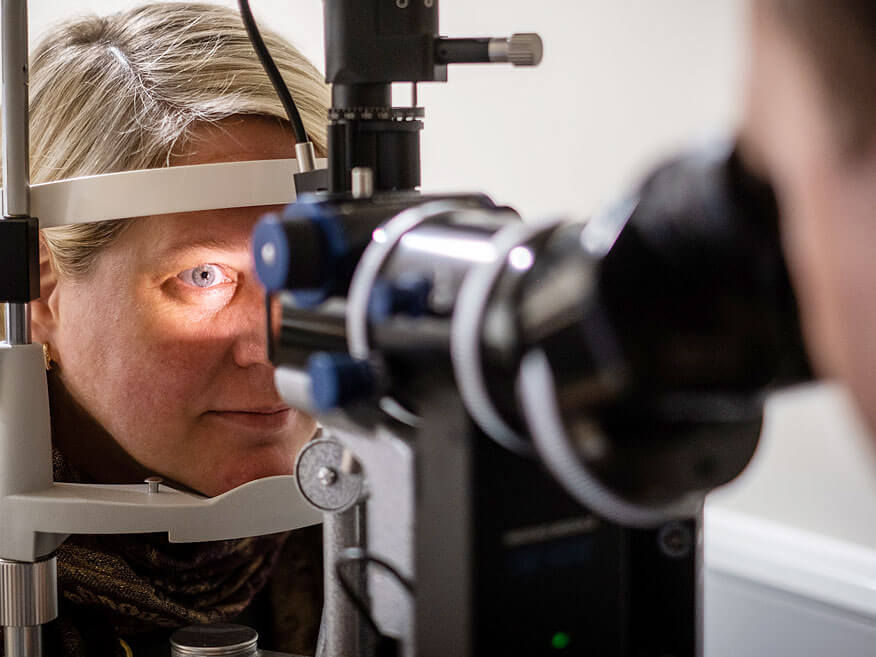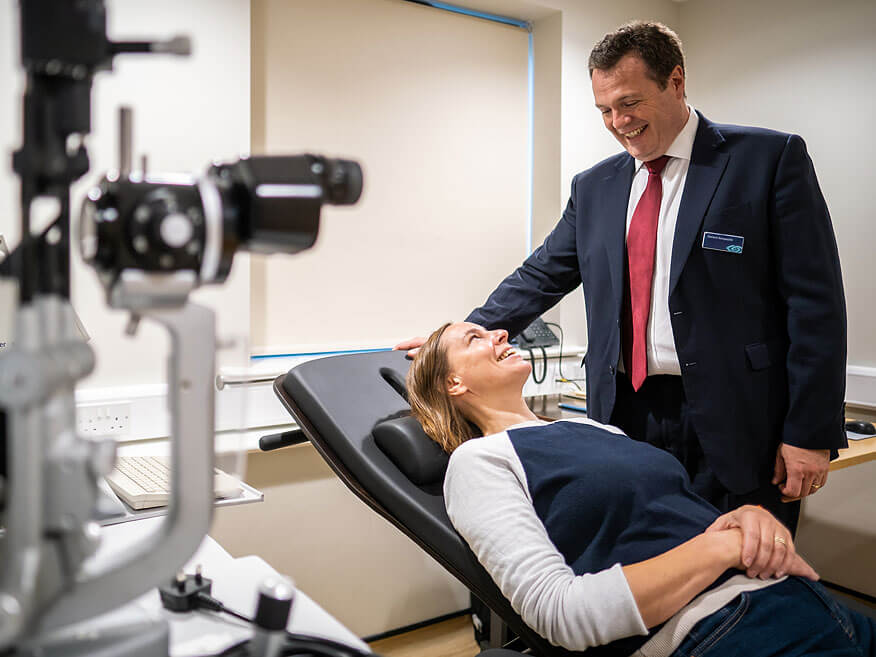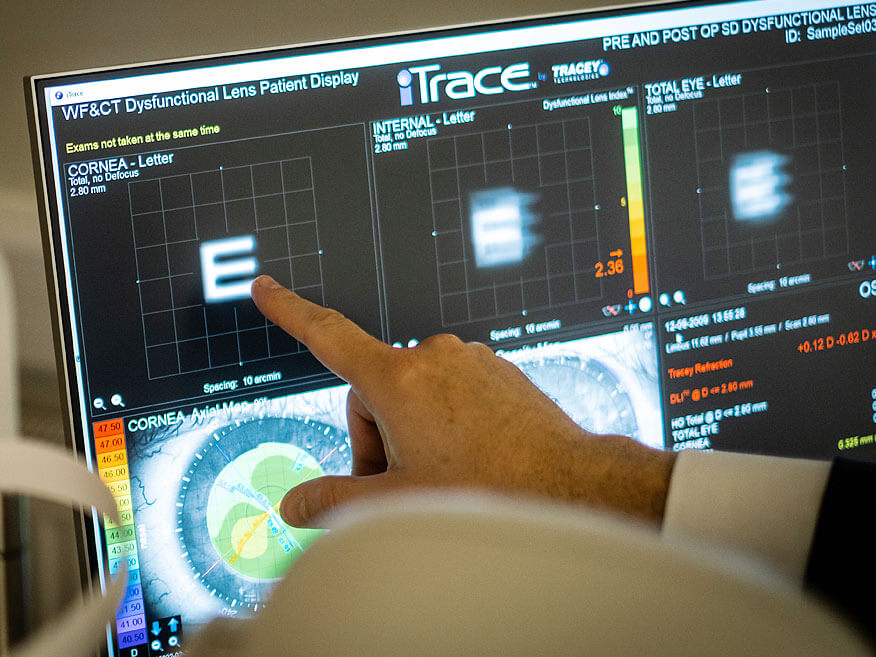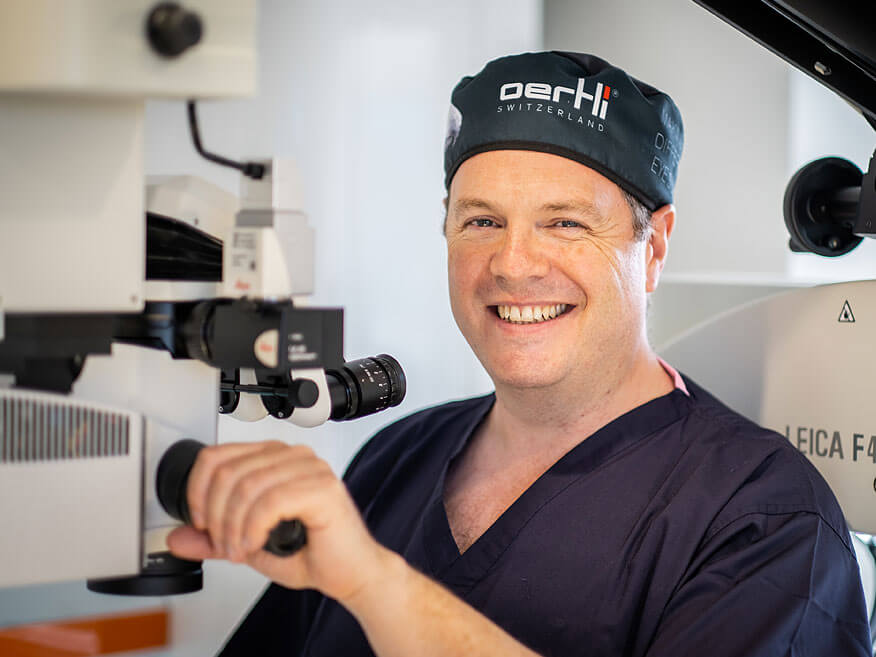
The Eye
If the eyes are indeed the windows to the soul, then the gift of sight is the most profound way we connect. Better sight, means better quality of life. Therefore, we want to help you achieve positive outcomes beyond better vision; that might be as simple as freedom from glasses; it may be as life-changing as rediscovering a quality of life you feared perhaps lost forever.
That’s why at Lakeland Vision, we look beyond the immediate problem and strive for life-enhancing outcomes that deliver a meaningful difference to you.

How the eye works
Light enters the eye through the cornea, a transparent window-like structure which provides around two thirds of the eye’s focusing power. Finely adjusting the cornea with laser surgery can thus help correct some focusing problems.
Astigmatism is the term used when the cornea is not regularly shaped. A normal cornea is round and spherical (like a football) so that regardless of which direction light comes from it is focused to the same spot. In a cornea with astigmatism, the curvature is different in two planes so the cornea is more rugby ball shaped. This means that light is focused at different points, causing the potential for vision to be blurred or distorted. Astigmatism can be corrected with refractive surgery.

The lens sits behind the cornea and coloured iris and is responsible for the remaining fine focusing of the eye, giving us both distance and near vision through a process known as accommodation. In later life accommodation reduces (a process known as presbyopia), and you may find that you need to wear spectacles to help with reading. The lens can also become irreversibly cloudy (known as a cataract).
Finally light is focused onto the retina – the photosensitive lining at the back of the eye that creates chemical messages, travelling through several sets of nerves to the brain. The brain then interprets these messages into ‘sight’.
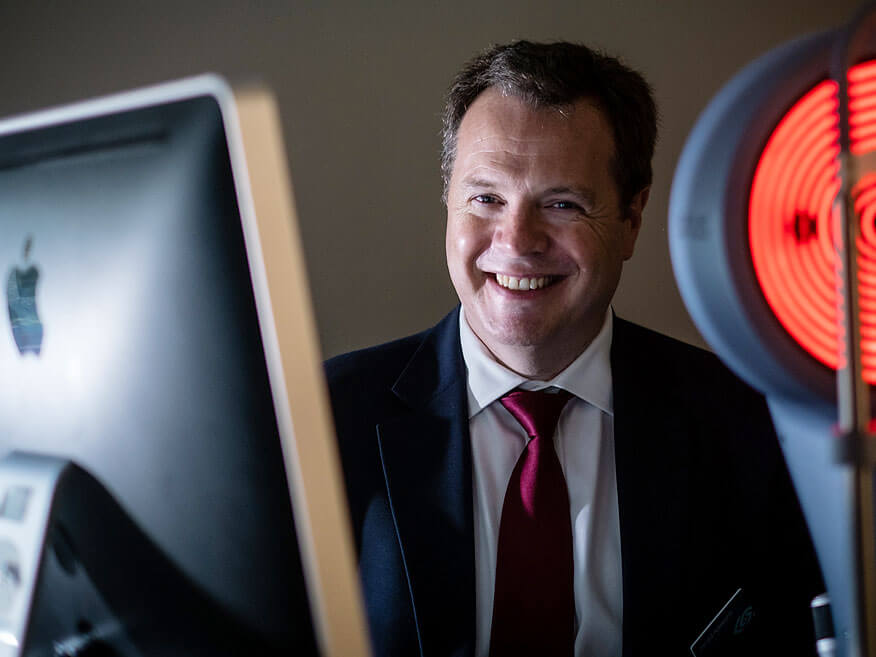
Myopia (short sightedness)
This condition occurs when the eyeball is too long for the focusing power of the eye, causing blurred vision when looking at distant objects. As the object comes closer, the focus moves back towards the retina at the back of the eye so it becomes clearer, thus myopic people can frequently read without glasses.
Myopia can be corrected with refractive surgery and Mr Gerard Ainsworth would be pleased to discuss options with you.
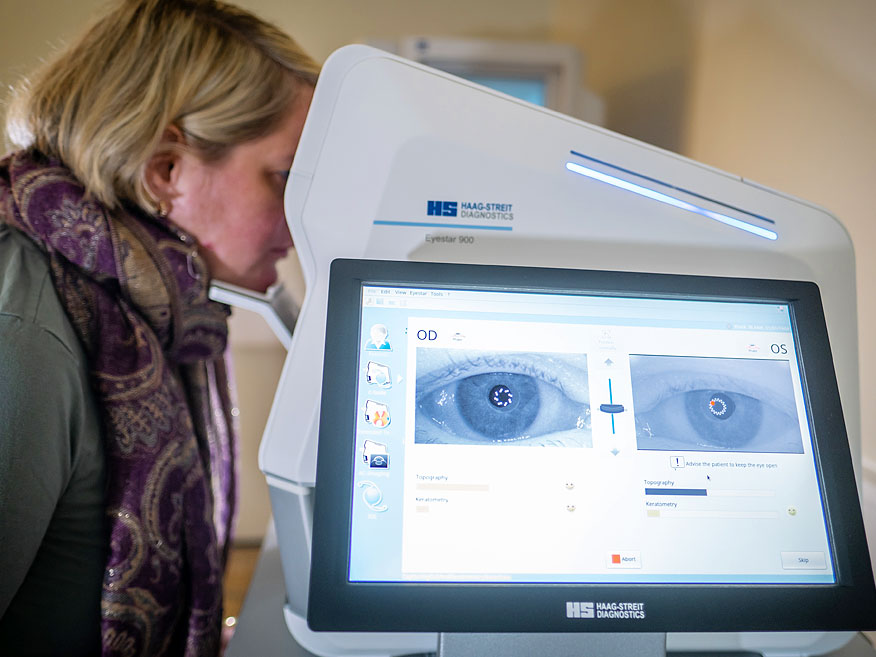
Hypermetropia (long sightedness)
Hypermetropia occurs when the eyeball is too short for the focusing power of the eye, causing blurred vision for close objects. To correct this, the eye can accommodate (i.e. use the natural lens to increase the power of focusing and bring the image onto the back of the eye), however as an object comes closer more effort is required to focus the image and eventually the eye simply cannot focus strongly enough. Thus if you have hypermetropia you may tire easily when reading or doing close work, as the effort required to focus is greater than usual.
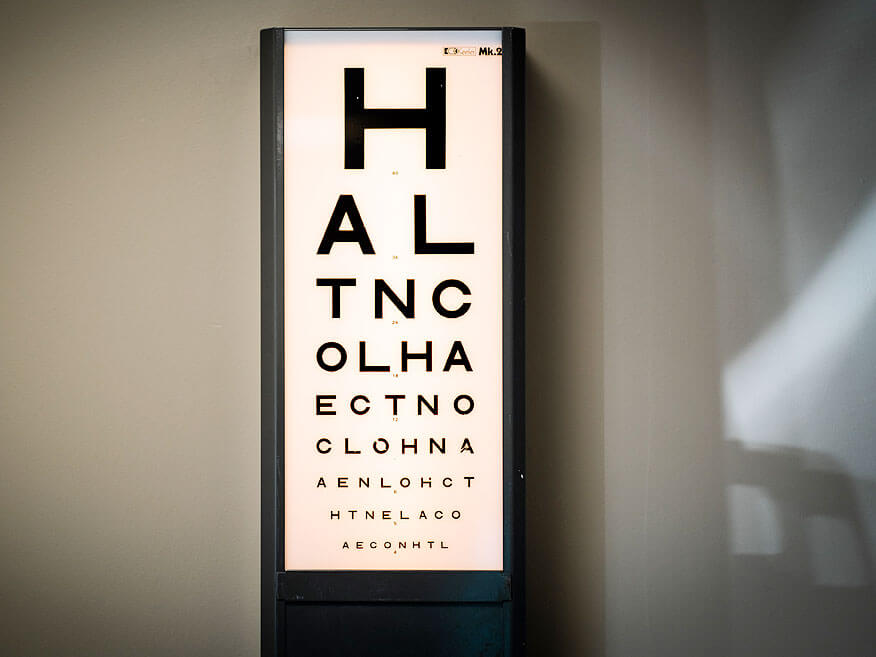
Presbyopia
Presbyopia occurs when the focusing power of the lens decreases, a process that occurs naturally in later life. When this lens accommodation reduces you may find that you need to wear spectacles to help with reading.
Presbyopia can be corrected with refractive surgery, removing the natural lens replacing it with a premium lens to increase the range of vision. This will reduce your dependence on spectacles and Mr Gerard Ainsworth would be pleased to discuss options with you.
Eye conditions we treat
Here at Lakeland Vision, Mr Gerard Ainsworth offers management and surgical correction for a number of eye conditions.
Please click on each for more information:
How we can help you
We would be pleased to answer any questions you may have and discuss your individual eye care needs – please contact us on: Tel: 01768 877088 or enter your details into our enquiry form to find out more or make an appointment.

